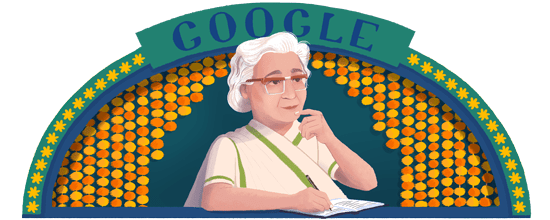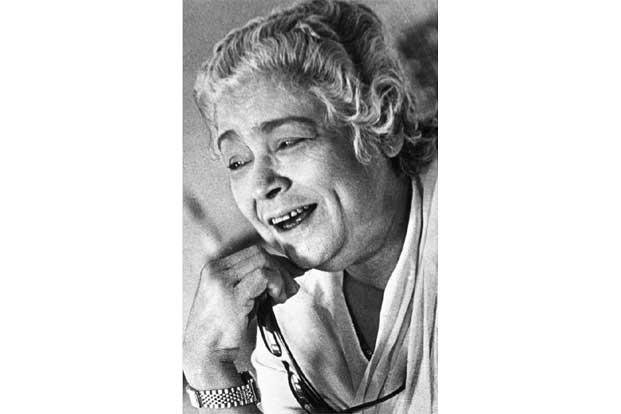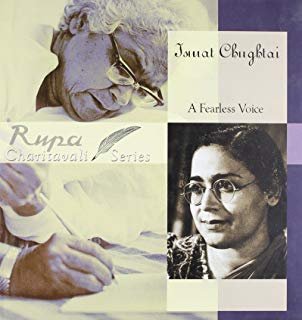Google Doodle of the day (Ismat Chughtai's 107th birthday) 21st August 2018
Hello, Good Morning Friends.....
Today i would like to share my views about google doodle of the day.

ISMAT Chughtai, one of Urdu’s most accomplished fiction writers and director, epitomised the 20th-century women writers of Urdu: enlightened, bold, iconoclastic, progressive and feminist. She was Urdu language writer of India. she born in Badayun, British India at 21 August 1915, and died 24 October 1991 (age of 76) Mumbai, India. Her Spouse was Shaheed Latif (1941–1967) (his death) and had 2 Children Seema Sawhny, Sabrina Lateef.
Beginning in the 1930s, she wrote on themes like female sexuality and femininity, middle-class gentility, and class conflict, often from a Marxist perspective. With a style characterised by literary realism, Chughtai established herself as a significant voice in the Urdu literature of the twentieth century, and in 1976 was awarded the Padma Shri by the Government of India.

Some Publications on Ismat Chughtai:
Ismat: Her Life, Her Times. Sukrita Paul Kumar, Katha, New Delhi,2000,
Ismat Chughtai, A Fearless Voice. Manjulaa Negi, Rupa and Co, 2003,
"Torchbearer of a literary revolution". The Hindu, Sunday, 21 May 2000.
Kashmir Uzma Urdu weekly, Srinagar, 27 December 2004, 2 January 2005.
"Ismat Chughtai – Pakistan-India (1915–1991)", World People, 5 May 2006.Eyad N. Al-Samman,
"Ismat Chughtai: An Iconoclast Muslim Dame of Urdu Fiction", Yemem Times, 13 April 2009.

Ismat Chughtai was born in Badayun, Uttar Pradesh to Nusrat Khanam and Mirza Qaseem Baig Chughtai;she was ninth of ten children–six brothers, four sisters. The family shifted homes frequently as Chughtai's father was a civil servant; she grewup in cities including Jodhpur, Agra, and Aligarh, mostly in the company of her brothers as her sisters had gotten married while she was still very young. She thought of her second-eldest brother, Mirza Azim Beg Chughtai, a novelist, as a mentor.After Chughtai's father retired from the Indian Civil Services, the family eventually settled in Agra.
Chughtai's primary education was from the Women's College at the Aligarh Muslim University and graduated from Isabella Thoburn College with a Bachelor of Arts degree in 1940.Despite strong resistance from her family, she completed her Bachelor of Education degree from the Aligarh Muslim University the following year.It was during this period that Chughtai became associated with the Progressive Writers' Association, having attended her first meeting in 1936, and there she met Rashid Jahan, one of the leading women writers of industry, who was later credited for inspiring Chughtai to write "realistic, challenging female characters".
Chughtai began writing in private around the same time, but did not seek publication for her work until much later.
Now her carrier starts growing. she wrote a drama entitled Fasādī (The Troublemaker) for the Urdu magazine Saqi in 1939, which marked her first published work. Upon publication, readers mistook it as a play by Chughtai's brother Azeem Beg, Following that, she started writing for other publications and newspapers. Some of her early works included Bachpan (Childhood), an autobiographical piece, Kafirher first short-story, and Dheet (Stubborn), her only soliloquy, among others. In response to a story that she wrote for a magazine, Chughtai was told that her work was blasphemous and insulted the Quran.She, nonetheless, continued writing about "things she would hear of".Her continued association with the Progressive Writers' Movement had significant bearings on her writing style; she was particularly intrigued by Angaray, a compilation of short-stories by the progressive writers.
Moreover her aceviement in Filmography, Awards and honours are:
Films :
1948 - Shikayat ,1948 - Ziddi,1950 - Arzoo, 1951 - Buzdil, 1952 - Sheesha, 1953 - Fareb, 1954 - Darwaza, 1955 - Society, 1958 - Sone Ki Chidiya, 1958 - Lala Rukh, 1966 - Baharen Phir Bhi Ayengi, 1973 - Garam Hawa - Filmfare Best Story Award (shared with Kaifi Azmi), 1978 - Junoon
Awards and honours:
1974- Terhi Lakeer Ghalib Award for Best Urdu Drama
1975 - Garam Hawa Filmfare Award Best Story Government of India State Award
1976 - Indian civilian awards Padma Shri
1979 - Andhra Pradesh UrduAkademi Award - Makhdoom Literary Award Won
1982 - Soviet Land Nehru Award
1990 - Rajasthan Urdu Akademi - Iqbal Samman
If you enjoy this blog would you please SMASH that Upvote, follow button and let me know your views about her in a comment below to show your support!
Follow me:
Steemit: https://steemit.com/@talwindersingh91
Thanks for your time. God Bless All.
LETS REACH 10,000 FOLLOWERS TOGETHER !!
Nice info
Thanks
Posted using Partiko Android
Nice Informative post
Thanks Nick bro
Brother, you have really done well, you are working hard all the best
Thanks bro.
nice information bro..
Thanks Bro
Thanks for sharing, it's nice information
Posted using Partiko Android
Thanks
Nice
Thanks
Posted using Partiko Android
@talwindersingh91 well work bro ...
Keep it up...
Thanks
I found useful this..
Thanks bro
Nice info bro great going
Thanks bhaji
Posted using Partiko Android
Congratulations @talwindersingh91! You have completed the following achievement on Steemit and have been rewarded with new badge(s) :
Click on the badge to view your Board of Honor.
If you no longer want to receive notifications, reply to this comment with the word
STOPDo not miss the last post from @steemitboard:
SteemitBoard and the Veterans on Steemit - The First Community Badge.